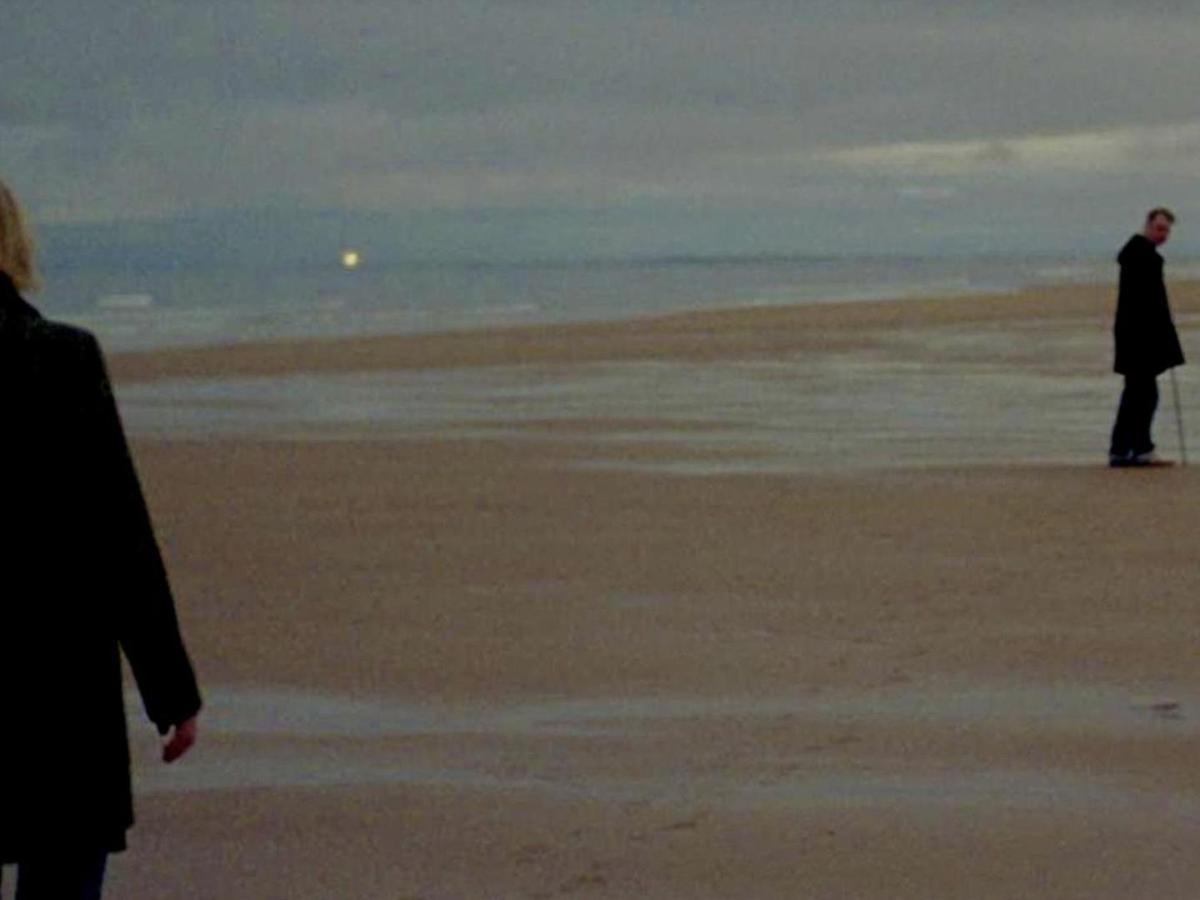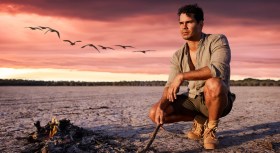Edwyn Collins has been written off as a one-hit wonder by countless pithy online lists and music video countdowns; however the narrative of the Scottish singer’s ascent through the charts with 1995’s A Girl Like You and then his seeming disappearance from view is marked by more than just waning popularity. Collins’ climb was slow, evolving through bands Nu-Sonics in the 1970s and Orange Juice in the 1980s. His efforts following his best-known song failed to find the same audience, but a modest life with his wife, Grace Maxwell, kept him happy. Then, in 2005, he suffered two major cerebral hemorrhages.
Directors James Hall and Edward Lovelace (Werewolves Across America) tell Collins’ tale after the passage of years has allowed the fallout from his condition to settle, though making the timeline clear isn’t indicative of a standard approach to his story. The filmmakers want the audience to piece together the facts, discover the details and delve into everything Collins once was and now is in an erratic fashion mirroring his own endeavours in the wake of his illness. They also want viewers to experience the cognitive dissonance and sense of abstraction that he went through as he attempted to recuperate.
A snippet of the sounds of the song start a documentary that cycles through footage of his heyday – performing, appearing with Conan O’Brien, being interviewed – demonstrating the smart, funny and charming persona he showed to the world. Then comes the contrast, in murkiness, all disjointed and stuttering, before an icy lake and rolling greenery draw focus. Words surface, the four phrases Collins was comfortable with when he awoke: ‘no,’ ‘yes,’ ‘Grace Maxwell,’ and ‘the possibilities are endless.’ In an immersive collage that eventually circles back to contemporary glimpses of his reclaimed abilities, a pattern solidifies in a space teeming with vulnerability and devoid of structure, tying the film’s perspective to its subject.
Rare is such a method of narrative and visual exploration, and risky too, but here the gamble pays off. It is atypical for a documentary to experiment so freely while also perfecting the combination of information and execution, and unusual for a film to tell its tale in a manner so truly doing justice to its content that no other mode would seem acceptable, yet that’s exactly what Hall and Lovelace achieve. Impeccable technical work forms the foundation, cinematographer Richard Stewart’s (McCullin) visuals finding beauty in bleakness, and a score by Collins himself hauntingly atmospheric. The mood is one of hope and uncertainty intertwined, again an ideal manifestation of the underlying plight.
Such artistry and ambitious sensory evocation of Collins’ post-stroke memory loss, speech difficulties, and earnest struggle to regain his life would amount to little if it didn’t help us understand not just the experience, but the impact – not only on the obvious figure at the centre and his career, but on his relationship with Maxwell. That the film becomes an endearing portrait of personal endurance for both is its missive of magnificence amid its ample tragedy. It is in the emotional resilience and the aesthetic resonance, both reflections of receding into ill health and recovering, that the titular statement proves pertinent.
Rating: 4 out of 5 stars
The Possibilities are Endless
Directors: James Hall and Edward Lovelace
UK, 2014, 83 mins
Melbourne International Film Festival
www.miff.com.au
31 July – 17 August
Actors:
Director:
Format:
Country:
Release:





